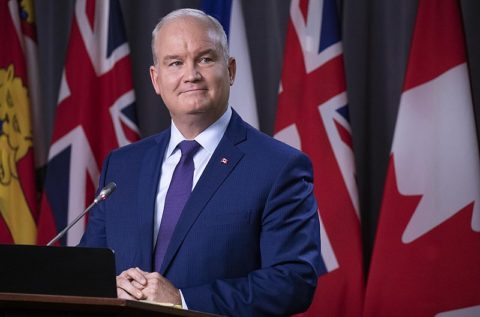As Erin O’Toole ably demonstrated in the September 20th federal election, when you deliberately exclude the SoCons, the libertarians, the gun-owners, the free speech advocates, and the fiscal conservatives, what you have left is a party that doesn’t have a lot to differentiate itself from the Liberals. Ben Woodfinden offers some thoughts on the Conservative Party’s immediate post-election phases:
I don’t want to spend long on this point because I find this kind of Conservative infighting (the tory syndrome), which is often about a combination of both ideology mixed in with personal feuds and rivalries, extremely frustrating. I think O’Toole deserves a second shot for a few reasons. I thought there was a lot to like in the platform, because O’Toole himself performed fairly well during the campaign for the most part, and the Conservatives are on the path to form government. I also think another leadership election is a bad idea and this habit of dumping leaders after single election results is extremely shortsighted. Changes are needed, but I don’t think replacing O’Toole is one of them.
Before some of you send furious responses about how I’ve “sold out” or how O’Toole sold out and therefore needs to go, I absolutely do think that portions of the base have every right to be angry. As I wrote in the Post column, what has angered many is not simply the campaign O’Toole ran, it was that he won the leadership running as a “true blue” and then pivoted to something else.
The Conservative Party is not a party of one. O’Toole needs to show some humility and work to rebuild some trust with these parts of the base (and caucus) who are upset and angry over this. The Conservative Party is very much a coalition of different groups who disagree on all sorts of things. Keeping these groups together is a delicate and at times challenging task. […]
Anyways, to summarize where I stand on this, and I have no plans of getting dragged into this too much – there needs to be some efforts on behalf of O’Toole to restore some trust with the various factions within the party that are unhappy, but I think overall some of the shifts that are being made are worthwhile ones. It would improve the discourse on conservatism in Canada if we moved beyond the red versus blue tory, liberal lite versus true blue framing that serves us poorly. While we need to wait for a full post-mortem and analysis of the results, there also seem to me to have been some positive signs that this realignment/blue collar shift can work. Matt Gurney interviewed an anonymous senior campaign official after the election for TVO, and something the official said intrigued me:
Gurney: Whoa, hang on. That sounds like something we just shouldn’t blow past! What was the old Conservative coalition, and what happened to it?
Conservative: [Laughs] Okay, obviously it varies by place, but think of it this way: our three legs were big business and corporate, rural and farmers, and a swing component. That third one was tricky. Mulroney brought the Quebec nationalists. Harper, we got them with ethno-community suburban outreach. But I think the Liberals are beating us on big business, and we need to accept that and pivot to small business, working-class, things like that. We just started doing that, and it’s already working. We did shockingly well in Hamilton. And look at northern Ontario. These places are in play for us now. Northern Ontario is going to get very interesting. But if I’m being honest, the question of who the new Canadian Conservative voter isn’t one we’ve fully answered yet. We’re winning the popular vote, but we still need to grow, and I think that needs more time.
I went and did some digging myself and what this anonymous official is saying here appears to check out, and if you combine this with the gains made in Atlantic Canada I think there are real reasons for optimism on this front. This election could be comparable to what happened with the Conservatives in 2017 in the UK, but in a positive way. Hear me out here. In that election Theresa May came close, but just fell short, on breakthroughs across the board that would have fully inaugurated her as the champion of this realignment conservatism. While it didn’t materialize in 2017, it did in 2019. The progress is there, and I really think Conservatives should give this another shot next chance they get, it really could pay off. The party needs to break through in suburban seats, and I think this “thoughtful populism” as John Ibbitson described it can absolutely do that in the next election.




